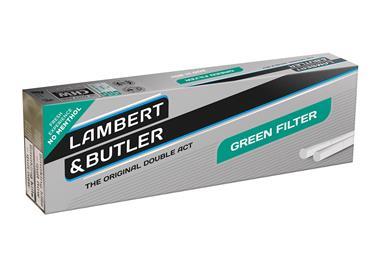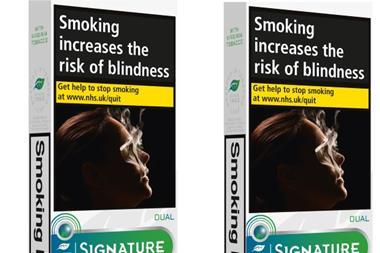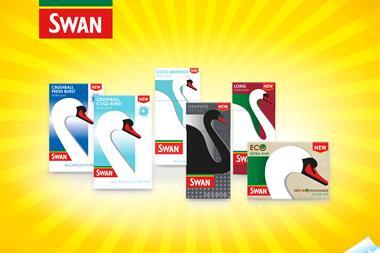The Rural Shops Alliance: on banning 10s
“The first point we would make is the emotive and totally unwarranted used of the term ‘kiddie packs’ in the consultative document. This is a term that is not heard at all outside the anti-tobacco lobby and use of it suggests an unprofessional and biased approach to the issue.
“It is illegal to sell cigarettes to under 18s and, although not perfect, enforcement of this law is generally quite good. If under 18s are unable to obtain tobacco then the issue of pack sizes becomes one of minor significance to them.
“In practice, there is limited benefit from banning packs of 10. Because of the lower unit costs people with restricted finances disproportionately use them. Such people are often also accessing the black market and rolling their own cigarettes to save money alongside legitimate purchases.
“However, every shopkeeper we have talked to on this issue has regular customers who buy packs of 10 cigarettes, usually daily, as a way of rationing their tobacco consumption. Banning packs of 10 would force these individuals to buy packs of 20, with an almost certain increase in their consumption. We believe that this is shown in the Irish experience.
“As an analogy, would you make people buy one-litre bottles of vodka rather than 70cl to restrict alcohol consumption? Would you make chocolate bars only available in large packs to fight obesity?
“On balance, we are convinced that it would be counterproductive to ban packs of 10 as the help they provide to moderate smokers in limiting their habit far outweighs their use by young people.”
Smokers’ lobby group Forest: on banning pos displays
“To date, there is little evidence that banning the point-of-sale display of tobacco has a serious impact on youth or adult smoking rates. In Iceland, where pos display has been banned since August 2001, the rate of teenage smokers has remained largely unchanged for more than a decade. In the Canadian province of Saskatchewan, the percentage of smokers increased from 21% in 2002 to 24% in 2003 after the display of tobacco products was banned. Likewise, while youth smoking rates in the rest of Canada fell from 22.5% to 22% in the same period, the rate in Saskatchewan increased from 27% to 29.5%
“Banning pos display is gesture politics, designed merely to ‘denormalise’ smokers. It will have little impact on existing smokers (who will simply ask for their current brand of tobacco) although it clearly restricts their ability to choose an alternative brand. Meanwhile, human nature being what it is, it is likely to make smoking more, not less, attractive to many young adults who will enjoy asking for a product that is not on display.
“The major beneficiaries will be the larger retail stores who have both the space and staff to provide designated counters where a far greater variety of brands will be available, albeit under the counter. The losers will be smaller retailers – local newsagents and village stores – for whom the potential loss of revenue (to the larger stores) could be enough to put them out of business.”
Imperial Tobacco: on plain, unbranded packaging
“We believe that plain packaging for tobacco products is unnecessary, unreasonable and unjustified. It is not based on sound public policy, or on compelling evidence. Plain packaging would not address the issues that the Department of Health seeks to combat: it would make no overall contribution to the public awareness of the risks associated with smoking; it would not provide more information to smokers; and it would not reduce the appeal of tobacco products, especially to young people.
“The primary risk factors for youth smoking initiation are clearly documented. Packaging of tobacco products is not one of these risk factors. The introduction of plain packaging would make no contribution to addressing youth smoking initiation.
“We believe that we are entitled to use our packaging to enable adult consumers to distinguish our quality products from those of our competitors. Regulation that requires plain packaging will expropriate valuable corporate assets in which the company and its shareholders have invested for more than a century and risks placing the UK government in breach of a range of legal and treaty obligations that relate to intellectual property rights, international trade and EU law.
“It will also have a negative effect on competition. There would be little incentive for retailers to stock new brands and it would be practically impossible for a new competitor to enter the market successfully or an existing competitor to by launching a new brand. Plain packs would, however, facilitate counterfeiting.”
“The first point we would make is the emotive and totally unwarranted used of the term ‘kiddie packs’ in the consultative document. This is a term that is not heard at all outside the anti-tobacco lobby and use of it suggests an unprofessional and biased approach to the issue.
“It is illegal to sell cigarettes to under 18s and, although not perfect, enforcement of this law is generally quite good. If under 18s are unable to obtain tobacco then the issue of pack sizes becomes one of minor significance to them.
“In practice, there is limited benefit from banning packs of 10. Because of the lower unit costs people with restricted finances disproportionately use them. Such people are often also accessing the black market and rolling their own cigarettes to save money alongside legitimate purchases.
“However, every shopkeeper we have talked to on this issue has regular customers who buy packs of 10 cigarettes, usually daily, as a way of rationing their tobacco consumption. Banning packs of 10 would force these individuals to buy packs of 20, with an almost certain increase in their consumption. We believe that this is shown in the Irish experience.
“As an analogy, would you make people buy one-litre bottles of vodka rather than 70cl to restrict alcohol consumption? Would you make chocolate bars only available in large packs to fight obesity?
“On balance, we are convinced that it would be counterproductive to ban packs of 10 as the help they provide to moderate smokers in limiting their habit far outweighs their use by young people.”
Smokers’ lobby group Forest: on banning pos displays
“To date, there is little evidence that banning the point-of-sale display of tobacco has a serious impact on youth or adult smoking rates. In Iceland, where pos display has been banned since August 2001, the rate of teenage smokers has remained largely unchanged for more than a decade. In the Canadian province of Saskatchewan, the percentage of smokers increased from 21% in 2002 to 24% in 2003 after the display of tobacco products was banned. Likewise, while youth smoking rates in the rest of Canada fell from 22.5% to 22% in the same period, the rate in Saskatchewan increased from 27% to 29.5%
“Banning pos display is gesture politics, designed merely to ‘denormalise’ smokers. It will have little impact on existing smokers (who will simply ask for their current brand of tobacco) although it clearly restricts their ability to choose an alternative brand. Meanwhile, human nature being what it is, it is likely to make smoking more, not less, attractive to many young adults who will enjoy asking for a product that is not on display.
“The major beneficiaries will be the larger retail stores who have both the space and staff to provide designated counters where a far greater variety of brands will be available, albeit under the counter. The losers will be smaller retailers – local newsagents and village stores – for whom the potential loss of revenue (to the larger stores) could be enough to put them out of business.”
Imperial Tobacco: on plain, unbranded packaging
“We believe that plain packaging for tobacco products is unnecessary, unreasonable and unjustified. It is not based on sound public policy, or on compelling evidence. Plain packaging would not address the issues that the Department of Health seeks to combat: it would make no overall contribution to the public awareness of the risks associated with smoking; it would not provide more information to smokers; and it would not reduce the appeal of tobacco products, especially to young people.
“The primary risk factors for youth smoking initiation are clearly documented. Packaging of tobacco products is not one of these risk factors. The introduction of plain packaging would make no contribution to addressing youth smoking initiation.
“We believe that we are entitled to use our packaging to enable adult consumers to distinguish our quality products from those of our competitors. Regulation that requires plain packaging will expropriate valuable corporate assets in which the company and its shareholders have invested for more than a century and risks placing the UK government in breach of a range of legal and treaty obligations that relate to intellectual property rights, international trade and EU law.
“It will also have a negative effect on competition. There would be little incentive for retailers to stock new brands and it would be practically impossible for a new competitor to enter the market successfully or an existing competitor to by launching a new brand. Plain packs would, however, facilitate counterfeiting.”
























No comments yet